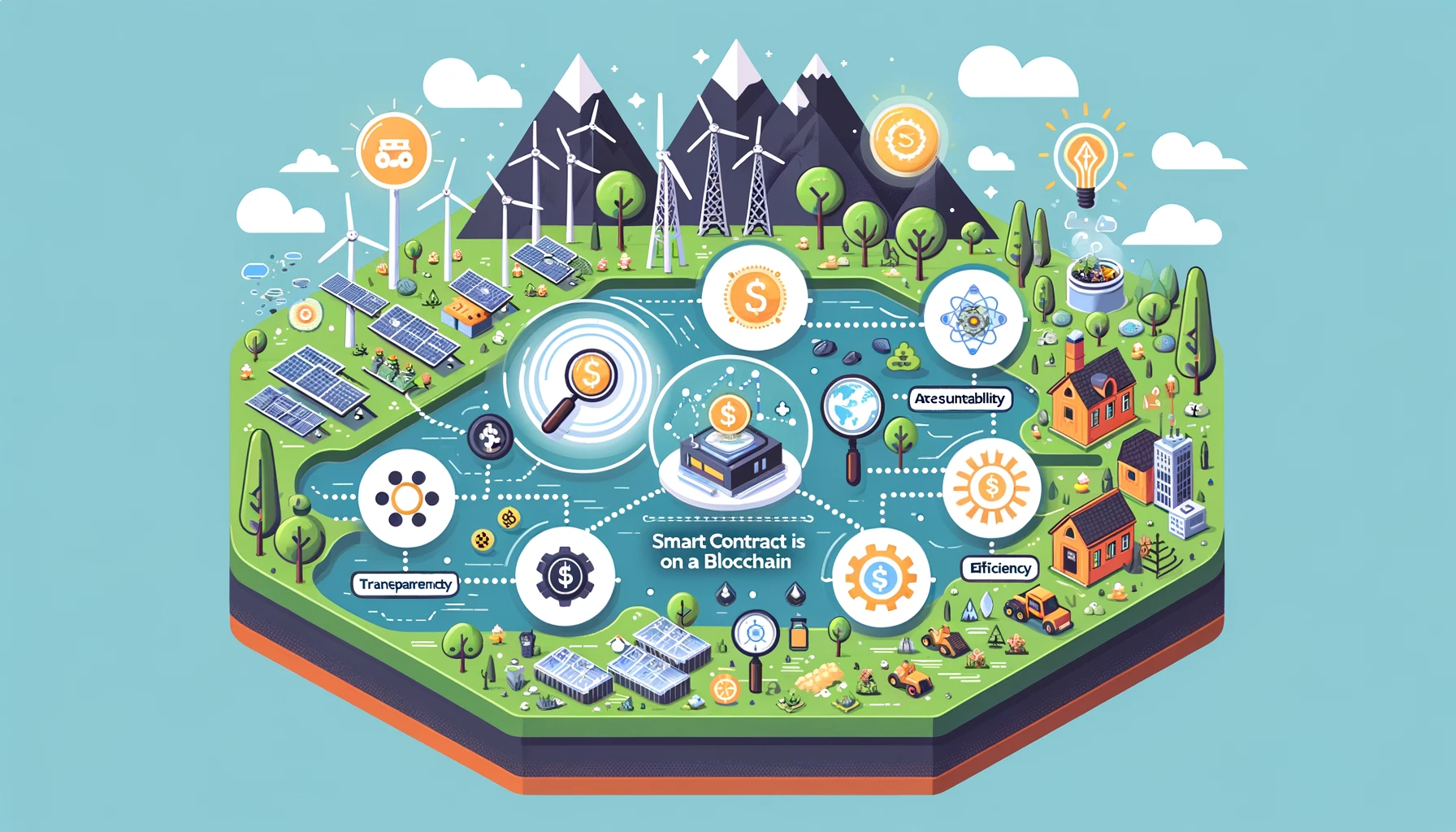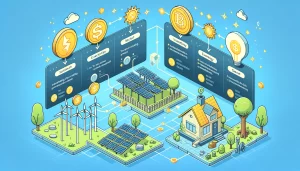In the quest for more effective environmental governance, technology offers innovative solutions that promise to transform traditional approaches. Among these, smart contracts, powered by blockchain technology, stand out for their potential to enforce environmental policies and agreements with unprecedented precision and transparency. This article delves into the role of smart contracts in environmental governance, exploring their benefits, applications, and the challenges they face.

Unlocking the Potential of Smart Contracts
Smart contracts are self-executing contracts with the terms of the agreement between buyer and seller being directly written into lines of code. The code and the agreements contained therein exist across a distributed, decentralized blockchain network. Smart contracts allow transactions and agreements to be executed automatically without the need for intermediaries, which offers a robust tool for environmental governance.
Enhanced Transparency and Accountability
One of the most significant advantages of smart contracts is their ability to enhance transparency and accountability in environmental governance. Since transactions and agreements are recorded on a blockchain, they are immutable and transparent to all parties involved. This transparency ensures that all actions are traceable and that parties are held accountable, significantly reducing the risk of fraud and corruption.
Efficient Policy Enforcement
Smart contracts can automate the enforcement of environmental policies and regulations. For example, they can be programmed to release funds for conservation projects only when specific conditions are met, such as the achievement of certain environmental restoration milestones. This not only ensures that funds are used as intended but also motivates all parties to meet their obligations promptly.
Applications in Environmental Governance
Smart contracts have a wide range of applications in environmental governance, from natural resource management to pollution control and climate change mitigation.
Natural Resource Management
Smart contracts can revolutionize the management of natural resources such as water, forests, and fisheries. They can automate the issuance of licenses and permits, ensuring that resource extraction does not exceed sustainable levels. Additionally, smart contracts can facilitate the transparent and fair distribution of benefits from resource use to local communities and indigenous peoples.
Pollution Control
In pollution control, smart contracts can automate the monitoring and reporting of emissions by companies. They can be linked to sensors that measure air or water quality, automatically triggering penalties if pollution levels exceed legal limits. This real-time monitoring and enforcement mechanism can significantly enhance compliance with environmental regulations.
Climate Change Mitigation
Smart contracts can also play a crucial role in climate change mitigation efforts. They can manage and track the trading of carbon credits in a transparent and efficient manner, ensuring that emissions reductions are real and verifiable. Moreover, smart contracts can automate the financing of renewable energy projects, releasing funds based on the achievement of specific output or reduction targets.
Navigating Challenges
Despite their potential, the implementation of smart contracts in environmental governance faces several challenges. Technical barriers, such as the need for robust and secure IT infrastructure, are significant. There is also the challenge of ensuring that smart contracts are designed in a way that accurately reflects complex environmental laws and regulations.
Moreover, the success of smart contracts depends on widespread acceptance and trust in blockchain technology among governments, businesses, and civil society. Building this trust requires education, transparency, and the development of legal frameworks that recognize and enforce smart contracts.
Towards a Sustainable Future
Smart contracts offer a promising tool for enhancing the effectiveness and efficiency of environmental governance. By leveraging blockchain technology, smart contracts can ensure greater transparency, accountability, and prompt enforcement of environmental policies and agreements. While challenges remain, the potential benefits of smart contracts in advancing environmental sustainability are immense. As technology continues to evolve, so too will the opportunities to utilize smart contracts for a healthier planet.




